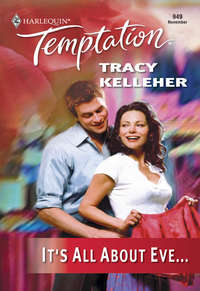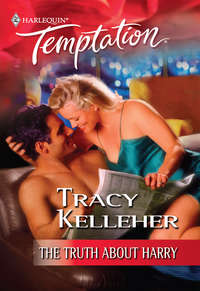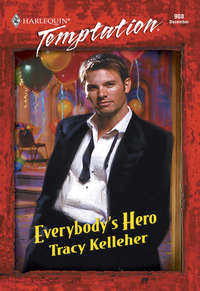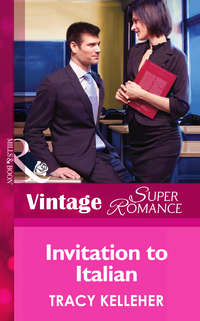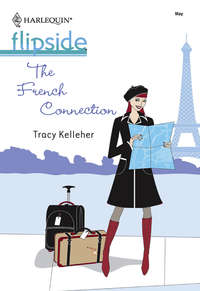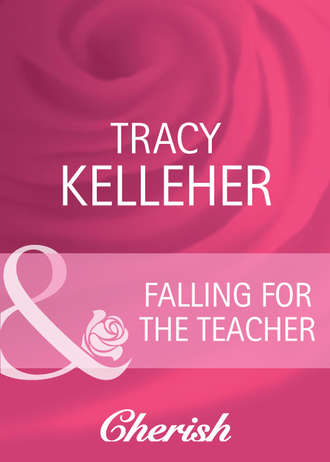
Полная версия
Falling for the Teacher

No way was she allowing him to do that
But before Katarina knew what was happening, Ben swiftly pushed up the loose leg of her jeans and exposed her knee. She saw him study the long railroad track of her scar, as well as the other jagged patches of scar tissue from where the bullet had ripped through the skin. Looking at it now in the firelight made even her a little queasy.
“It’s gross, I know,” she said.
But then he did the unexpected. He lifted her knee and he lowered his head. And with an aching sweetness, he kissed her leg. Not just her leg, every inch of her scars.
Katarina’s mouth dropped open in shock. “You—you don’t have to do that,” she said.
He lifted his head after planting one last feathery kiss.
“Yes, I do.”
Dear Reader,
I live in a small town. The other day I was walking my dog when I passed two neighbors deep in conversation. The man was a young German engineer whose company had transferred him to America three years ago, but who now was returning home. The other was a spry woman in her seventies, a former actress who taught drama. He was saying goodbye before leaving. “I hope you have something planned for the weekend,” he said sweetly. “Honey, I’m busy every day of my life,” she replied.
My first reaction was, only in a small town! Where else can people who’ve known each other forever or just a few years become so close? And where else can we gain snippets of wisdom while walking the dog?
I was delighted to bring the fictitious town of Grantham, New Jersey, to life in this story, as well as highlight a great community resource—adult education classes. I hope you will enjoy going back to school with me!
Tracy Kelleher
Falling for the Teacher
Tracy Kelleher

ABOUT THE AUTHOR
Tracy sold her first story to a children’s magazine when she was ten years old. Writing was clearly in her blood, though fiction was put on hold while she received degrees from Yale and Cornell, traveled the world, worked in advertising, became a staff reporter and later a magazine editor. She also managed to raise a family. Is it any surprise she escapes to the world of fiction?
To Jan and John, for providing the perfect place to write, not to mention the inspiration of their dog Mickey.
A special thank-you to Katarina Sekacova, my expert in Slovak.
And in loving memory of my dad, my biggest fan.
CONTENTS
PREFACE
CHAPTER ONE
CHAPTER TWO
CHAPTER THREE
CHAPTER FOUR
CHAPTER FIVE
CHAPTER SIX
CHAPTER SEVEN
CHAPTER EIGHT
CHAPTER NINE
CHAPTER TEN
CHAPTER ELEVEN
CHAPTER TWELVE
CHAPTER THIRTEEN
CHAPTER FOURTEEN
CHAPTER FIFTEEN
CHAPTER SIXTEEN
CHAPTER SEVENTEEN
CHAPTER EIGHTEEN
CHAPTER NINETEEN
CHAPTER TWENTY
CHAPTER TWENTY-ONE
PREFACE
Six weeks earlier…
FROM OUTSIDE THE HOUSE, Ben Brown could hear the insistent ring of the kitchen phone. But Ben had more urgent concerns to address. Chief among them, breathing.
He wiped the sweat off his brow with the back of his forearm, bent over at the waist and sucked in oxygen, ignoring the stitch in his side. He had told himself that turning thirty-eight the week before had been no biggie—just another nonexistent birthday candle on a nonexistent birthday cake.
But if it was so inconsequential, why the hell was it becoming next to impossible to clock seven-minute miles on his daily run along the towpath? Father Time was a cruel son of a bitch. Not to mention, almost as irritating as the phone that continued to drone on, demanding attention like an early morning alarm clock.
Ben straightened up—breathing was becoming tolerable—and considered the situation. Only three people had his unlisted number: one, his housekeeper; two, his one remaining friend from his former job—may everyone else burn in their greed and sense of entitlement; and three, his lawyer. Ben always thought in terms of numbers. According to his ex-wife, that was his strength but also his failing. What had been her name again?
He shrugged and cocked his head toward the open upstairs window, toward the sound of the vacuum cleaner going in his bedroom. That could only mean Amada, his housekeeper, had showed up when he was out running. So much for possibility number one. As for option number two, Ben knew that his friend and partner, Hunt, was in Davos, theoretically skiing, but more likely courting Swiss investors for their new venture capitalist firm. He looked at his sports watch. Four o’clock in the afternoon, which would be ten o’clock at night in Switzerland, too late for Hunt to be calling. So it had to be his attorney.
Never a happy option if recent history was any guide.
Ben considered letting the call go to voice mail when he heard the vacuum cleaner stop. God knows he didn’t want Amada to get mixed up in his business. Quickly he pushed open the door, the wood scraping along the slab of gray stone, an original element of the centuries old cottage.
I really do need to plane that, he reminded himself and picked up the phone.
“Brown,” he said.
“George B. Brown? Is this Mr. George Benjamin Brown?” The voice was female, unctuous and unfamiliar. Female he could take. Unctuous and unfamiliar held absolutely zero appeal.
He was about to hang up when the woman added, “My name is Trudy Colliver, and I’m calling from Steamboat Springs, Colorado.”
It was the “Steamboat Springs, Colorado,” that stopped him from slamming down the receiver. “Yes,” he said cautiously.
“Oh, good. I must say, you’re not an easy man to reach,” the woman at the other end of the line said. “I tried the Wall Street firm where you recently worked, and they suggested I contact your attorney in Manhattan. He, in turn, gave me your current number in—” Ben could hear a shuffling of papers “—in Grantham, New Jersey.”
“Did he now?” Ben was wondering if he should fire his lawyer today or wait for tomorrow. If he remembered correctly, it was the ambulance chaser’s birthday. Definitely today then.
“You see, I’m also an attorney, and I’m calling on behalf of a client. Charlise Worthington? I believe you were acquainted with Ms. Worthington?”
Charlise Worthington. Steamboat. Names out of his past, say, fifteen years ago, right after he’d gotten out of the Marines. Thumbing his way across the country with no particular focus, Ben had somehow landed in Steamboat Springs for one winter season, despite the fact that he’d never skied or snowboarded in his life and didn’t know a stem Christie from a telemark. No surprise there since foster homes didn’t exactly cater to expensive winter sports.
He had eked a meager wage playing piano at a bar where Charlie had been a waitress. She was a local, addicted to powder. The kind you skied on, that was. Charlie had had no time for drugs, any more than world politics, corporate greed or long-term leases. They’d shared laughs, more than a few beers and a brief affair.
The sad truth was—and Ben was beginning to be of the philosophy that truth was by and large sad—he had enjoyed her company and the sex immensely, but had headed for L.A. as soon as the snow had melted without an iota of hesitation and barely a glance backward. A typically insensitive guy. The only salvation was that Charlie had probably seen it coming, given her whole no-long-term lease on life thing.
Now, thinking back, though, he found he was smiling. “That’s right,” he said. “We did know each other, quite a few years back, but we lost touch.”
“That is what I was given to understand. Unfortunately it doesn’t make my news any easier.” There was a brief pause during which Ben could hear a long intake of breath. “Mr. Brown, I’m sorry to inform you that Ms. Worthington recently died.”
The sweat soaking his T-shirt turned ice-cold. Ben turned around and leaned against the kitchen counter. “That’s, ah, that’s…” What did you say in response to news about the death of someone who embodied life to its fullest? “That’s, ah, too bad.” He rubbed his forehead. “Was she in an accident? A skiing accident?”
“No, it was breast cancer. She was very courageous, and remained positive throughout the course of her treatments and relapses, but in the end the disease was just too strong.”
The tightness in his chest had nothing to do with the aftereffects of exercise. “I’m sorry. I’m…so sorry to hear that. Charlie was good, a good person. She didn’t deserve to die so young.”
“Does anyone?”
Ben didn’t respond. Unlike Charlie, he knew that he wasn’t a kind-spirited person. He could think of any number of people whom he wouldn’t shed a tear over if an errant bus happened to run over them. If there were any justice in the world, guys like him would be the ones to die young, while the Charlies of the world would live to a ripe old age, sitting around a roaring fireplace, sipping hot drinks and enjoying their grandchildren.
He rubbed his jaw with his palm. “Listen, if there’re some outstanding debts or things that need to be settled in her estate, I’d be happy to do so.” He turned on the cold water and bent his head to drink from the faucet.
“Actually, there is a small inheritance, but there are some bills that require payment, and your offer is very generous. But in all fairness, I called with reference to another matter in Ms. Worthington’s will.”
Ben straightened up and wiped away some water that dribbled off his chin. “Whatever Charlie wanted to give me, I’d rather you donate it to charity. I really don’t want for anything and prefer to live simply.” He leaned over to drink some more.
“God knows that with two mortgages, one kid in college and another taking private figure skating lessons that cost more than most people’s yearly pay, I can understand your preference. However, in this particular instance, it’s not so simple to reject the offer. You see the bequest is a boy. A fifteen-year-old boy.”
The water ran into Ben’s nose. It splashed over his face. His hand. He coughed. And coughed some more.
“Mr. Brown? Mr. Brown, are you all right?”
Blindly, Ben managed to turn off the tap and, leaning heavily on the edge of the sink, sucked in mouthfuls of air. Just to make sure, he gulped another large dose of oxygen. “Charlie had a son?” he said.
“That’s correct.”
Charlie would have been a wonderful mother. Ben knew it. He could perfectly imagine what her kid must be like: blond, athletic, easygoing, one of those kids who was perpetually wind-and sunburned, maybe with a chipped tooth that he’d gotten from a skateboard accident.
But he never would have imagined what came next.
“And, Mr. Brown, she’s named you as the boy’s father.”
CHAPTER ONE
Dear Grantham Community Members,
Welcome to the twenty-fifth year of the Grantham Adult School! As in years past, we are delighted to offer a wide range of classes to meet the needs and interests of the community. Our instructors include noted scholars from Grantham University, as well as artists, artisans and business experts residing in the area. Above all, we at the Adult School believe that education does not end with a diploma. Hence, our motto:
Education: the Wellspring of Life.
Iris Phox, President
Grantham Adult School
“EDUCATION: THE WELLSPRING OF LIFE!” Ben tossed the thin booklet on the coffee table in his living room. It joined a stack of library books, fly-fishing paraphernalia and an empty bag of Doritos. “What the hell is a ‘wellspring’ anyway?”
“What was that? I wasn’t listening,” said Huntington Phox, co-founder with Ben of Garden State Global Venture Capital. He sat in a cracked leather armchair kitty-corner to Ben’s couch and was absorbed in reading a company prospectus. “Reading” perhaps was stretching it, given the way he kept bringing the report closer to his aquiline nose before moving it farther away and then closer again.
The nose, by the way, matched the rest of Hunt’s lithe patrician body, a body honed by generations of breeding for playing polo or sailing in the America’s Cup. Somehow Hunt seemed blithely unaware of this fact, whereas Ben never forgot it, especially in comparison to his own physique. That could best be described as bruising, the kind of hulking form fit for felling trees or working on the loading docks. It was blond Mayflower vs black Irish. Day vs night.
“Oh, for the love of Pete!” Ben slid aside a stack of magazines and uncovered the magnifying glass he used for tying flies. “Here. If you refuse to wear reading glasses, at least use this. Otherwise, it’s too painful to watch.” He tossed the magnifying glass onto Hunt’s lap.
Hunt lowered the report. “It’s not that I refuse to wear reading glasses, it’s more that I refuse to believe that at thirty-five I’m showing any signs of aging. I have to live up to my image after all, and something like reading glasses just doesn’t fit the look.” The tone of his voice was self-deprecating.
“Well, I hate to tell you. Not only are you going blind as a bat, you’re also more tired these days. So much for your theory of remaining an ageless golden boy,” Ben teased.
“You’ve noticed that, too?” asked Hunt. He set his jaw but after a pause, he settled his features into his usual devil-may-care expression. “You know, Ben, you’re the only person I know who gets nastier in retirement. It’s a good thing you’re my friend, not to mention a hell of an investor,” he said, effectively changing the topic of conversation.
“I wouldn’t exactly call you a slouch, ol’ buddy. Just because you didn’t grow up a street fighter, doesn’t mean you don’t know how to mix it up with the big boys.”
“Such praise. Please, it’ll go to my head, and it’s already filled to the brim with such trivia as how to tie a full Windsor knot and the proper use of a finger bowl.” Hunt waited while Ben chuckled, then said more seriously, “Let’s just agree that we both know how to spot a financial opportunity when we see one, and that Ribacoff & Riley rued the day it lost us.”
Ben shook his head. “R&R rued the day it lost you. It rejoiced up and down the Street when I left.” R&R was considered the most aggressive mutual-fund company on Wall Street.
“Says you,” Hunt said.
“Says everyone else on the Street.”
Hunt rested his hands on overstuffed arms of the chair. “Ben, you and I both know that you didn’t have to take the fall for the rogue traders in your group. And anyone who really knows you, knows you’re completely honorable.”
“Honorable, maybe, but not above fostering a climate of cutthroat competition that encouraged people to do whatever it took to make money.”
“That’s called capitalism. Now, can we get back to the business of making us richer, and forget about the whole rotten world out there?” Hunt grabbed for the magnifying glass and for the first time noticed the flier that Ben had been reading. “Is that what you were talking about before?” He picked up the pamphlet and held the round lens up to his eye, magnifying it to scary proportions.
Baby blues that perfect didn’t need to be any bigger, Ben thought. “Yes, that’s it. And if the introduction to the flier isn’t ridiculous enough, you should see the attached note.”
Hunt lowered the magnifying glass. “Let me take a wild guess. My mother?”
“Your mother.” Ben picked up the corner of the booklet with the tips of two fingers. “I should really get the barbecue tongs to avoid direct contact.”
“It can’t be that bad.”
Ben dipped his chin. “This is your mother we’re talking about.”
“Please, what an accusation. After all, you’re talking about a woman who is both president of the garden club and chairs the capital campaign for the new Grantham Hospital. A woman so exalted by the local community she has won the Rupert L. Phox Award, named after my grandfather by the way, for being the outstanding Granthamite three years in a row? Wait.” He held up an index finger. “On second thought, you’re right. This is my mother you’re talking about. Get the tongs. Better yet, get a face mask and bug spray.” Then he flopped back in the chair and chuckled heartily. “So what does my mother want now?”
Ben flipped open the pamphlet and peeled away a Post-it note stuck to the page. “It seems Iris thought it would be a…a—” he read from the message “—‘a nice gesture of community goodwill’ to speak at the first session of this class.”
Hunt smiled. “I like that. ‘Nice gesture.’ Very ladylike but also unmistakably insistent.”
Ben frowned. “Ladylike my you-know-what. Imperial command is more like it.”
“So what class did she have in mind?”
“Well, she’d hardly pick flower arranging. No, it was something to do with investing.”
Hunt bent forward again and placed the magnifying glass atop a pile of books on Etruscan art. He pursed his lips and strummed his fingers on the edge of the table.
“What?” Ben asked.
“Now don’t jump all over me. The sins of the mother should not be visited upon the son, but—”
“But?” Ben didn’t like the way this was going.
Hunt raised his hands on high, a definite save-me, save-me gesture.
Ben wasn’t buying it. “Speak quickly before I inflict extreme pain.”
“Hear me out,” Hunt said. “Did you ever consider that she might be trying to be helpful? Trying in her own warped way to keep you from living the life of a hermit?”
“No.”
Hunt sank back in the chair in exasperation. “My God, Ben, except from playing piano after hours at some neighborhood bar, you’ve just about cut yourself off from civilization. Do you have any normal contact with the outside world?”
Ben wet his lips. “I occasionally go grocery shopping when I forget to put something on the list for Amada.”
“C’mon. I’m serious. Look at you!”
Ben was dressed like a reject from an Army-Navy store—worn jeans, overly washed T-shirt and scuffed work boots held together by knotted shoelaces and duct tape.
Hunt swept his hand around the room. “And look at where you live. In a cabin in the woods! It’s…it’s practically Little House on the Prairie! This from a man who had a loft in Tribeca that graced the cover of Architectural Digest!”
“It’s not a cabin. It’s an eighteenth century stone cottage.”
Hunt looked around in disbelief. “So that’s what they call bastions of damp rot now?” He scratched his head.
Ben scowled and looked away.
“Okay, let’s leave aside the discussion of real estate and get back to what’s really bugging you,” Hunt said. “Tell me, what’s so bad about lecturing a bunch of retirees? It’s just one night, and they’re probably hard of hearing anyway.”
Ben snapped the course booklet shut. “I don’t care if half the audience comes with their seeing-eye dogs. My life, as you well know, has recently become complicated enough. It’s hard enough just trying to make it through one day at a time, and I don’t need the added hassle of lecturing a bunch of strangers on, on—” he flipped open the booklet to the page with the sticky note “—on the ‘Fundamentals of Personal Investing,’ this damn course your mother’s so hot on.”
From beneath a pile of books on classic racing cars and Civil War history arose the sound of a ringing cordless phone.
Ben stared at the ringing pile but didn’t make a move.
“Aren’t you going to get it?” Hunt asked.
“The phone hasn’t been exactly kind to me of late.” Ben narrowed his eyes and finally dug it out. “Yes?…Oh, Amada, what’s up?…What do you mean he wasn’t there when you went to pick him up? I thought you said he was going to his friend Vincent’s house to study?” Ben nodded as he listened. “Sorry, sorry. Okay his friend, Verjesh. So where is he? Does Verjesh know?”
He crooked his elbow to read his Breitling sports watch, one of the few vestiges of his former high-flying lifestyle. To his surprise, the time was already seven-thirty. “No, he doesn’t? Well, he couldn’t have gotten far.” He ran his hand through his hair. “What’s that? He’s got his bike? And Verjesh said his backpack looked full?” He paused. “You don’t think…All right, all right. I’ll handle it. You just go on home.”
Ben rang off. “Sorry, Hunt, but we’ll have to continue this discussion later. I’ve got to head off on a search party. What a day. First your mother. Now my son!”
CHAPTER TWO
“YOU KNOW, DEAR, IT’S only natural to be nervous,” Lena Zemanova said to her granddaughter standing nearby. She had to raise her voice to be heard above the torrential rain that lashed at her stalwart frame. It was a dark, February evening, making the downpour cold and menacing, a real Horatio Hornblower moment in land-locked Grantham, New Jersey.
Katarina Zemanova wrestled with locking her grandmother’s ten-year-old Corolla while simultaneously trying to open her own umbrella. Like clockwork, the over-the-shoulder strap of her Coach briefcase chose the exact same moment to slip down, thereby crushing her left wrist. She might never play the violin again, Katarina ruefully acknowledged, not that she ever did, mind you. Whatever. She pressed the small button on the remote again—and again—but when the car refused to lock, she gave up and bent forward to do it manually. That meant her umbrella tilted back, which, as fate would have it, allowed a sudden burst of wind to pop it inside out. Oh, yeah.
Katarina closed her eyes and bit back a sigh. To think that she had once been an accomplished multitasker. The only thing more awkward that could possibly happen would be if her headband slipped down over her eyes.
Her headband slipped down over her eyes.
Life was not meant for the faint of heart.
Katarina pushed it back on her already soaked head, and blinked in despair, the raindrops beading on her lashes. Once upon a time, she had had her two hundred dollar coiffure professionally washed and blown dry before work each morning. Once upon a time was a mere four months ago. How quickly times change. Merely thinking “whatever” was a little more difficult the second time around.
“Really, Babička, I’m not a delicate flower,” Katarina said to her grandmother.
As a young bride, Lena had left what was then Czechoslovakia to come to live in New Jersey. Despite a passage of fifty years, certain Old World connections, especially Slovak phrases and vocabulary, lived on, including the Slovak word for grandmother, Babička.
“Of course you’re not a delicate flower. None of the Zemanova women are delicate flowers,” Lena said. “Still, if you’d wear a proper hat instead of carrying one of those overpriced gizmos, you wouldn’t be soaked to the bone.” She tsked at Katarina’s Burberry umbrella. Unlike her granddaughter she wore a sensible, eye-popping yellow rain slicker along with a pair of high Wellington boots. With a few tweaks here or there, she could have modeled for the figure on the Morton’s salt container.
The wind blew Katarina’s hair, and a wet lock slapped her cheek. “I don’t like hats. They give me hat hair. Though I’m beginning to rethink that prejudice.” She held the umbrella into the wind and worked the catch a few more times to pop it right side out. “Good,” she said, and holding the umbrella overhead, offered an outstretched hand to guide her grandmother over the uneven pavement of the parking lot. Unfortunately, the high school lot was closed due to neverending construction, and they were forced to make the trek from a temporary lot down the block.
Her grandmother promptly ignored Katarina’s gesture, and together they bent forward into the stiff wind and made their way toward the sidewalk. In the darkness of the evening, Katarina had to concentrate on the tricky footing due to all the construction around the school. With her weakened leg she felt especially vulnerable. She tightly gripped the collar of her coat around her neck. The driving rain bit into her pants, causing the still tender muscles of her right leg to spasm. She pretended it wasn’t happening. Denial was a powerful weapon, one she’d been living with these last months. Her briefcase flopped against her hip with each limping stride.


